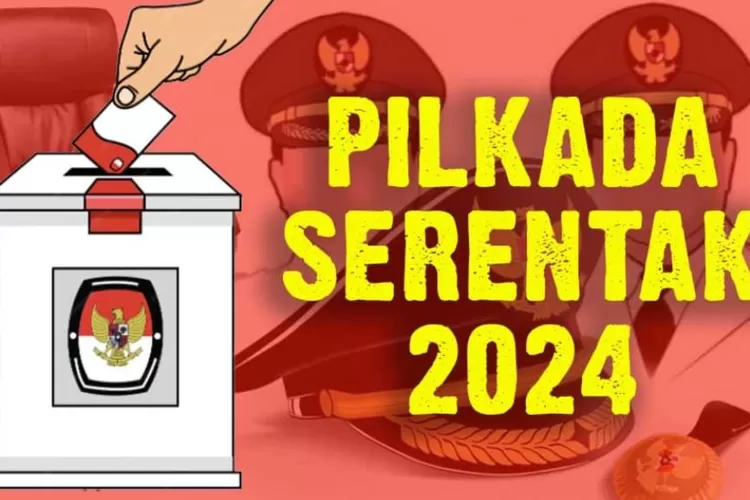Society Must Maintain Conducive Pilkada Dispute Hearing at the Constitutional Court
By: Amalia N. Fitriani*)
The Constitutional Court (MK) plays an important role in maintaining the stability of democracy in Indonesia, especially in resolving disputes over the results of the Regional Head Elections (Pilkada). The trial at the Constitutional Court is a place to test the validity of the Pilkada results and the process must be respected by all parties, including the community. Security, order, and conduciveness during this trial process are very important to ensure the continuation of a healthy democracy.
Secretary General of the Constitutional Court, Heru Setiawan, emphasized that security guarantees are a crucial element in supporting the smooth examination and decision-making process related to the simultaneous Pilkada disputes. It was conveyed that the main task of the Constitutional Court is to ensure security so that the Pilkada dispute resolution process can run smoothly until it is completed according to schedule. Heru added that the trial process must run safely, orderly, and professionally, reflecting the principles of democracy and justice.
In order to ensure security readiness, the Constitutional Court has collaborated with various related parties. The police and military have designed a special security program for the Pilkada dispute trial which will begin in early January 2025. This security includes the appointment of responsible personnel or PICs in each disputed area. These PICs are tasked with monitoring and coordinating to ensure the trial runs smoothly without disruption.
The public is expected to support these security efforts by maintaining a conducive attitude during the process. Public participation is very important in creating a safe and peaceful atmosphere. The main function of security is to ensure that each stage of the trial runs smoothly. Therefore, the public is urged not to be provoked by issues that can trigger tension.
Member of Commission II of the Indonesian House of Representatives, Ahmad Irawan, expressed his hope that the Constitutional Court’s decision could be the end of all disputes that occurred. Ahmad stated that the Constitutional Court must be careful in deciding each case, because the decision must be accepted by all parties involved. Ahmad added that the public also has a responsibility not to worsen the atmosphere with actions that could disrupt stability during the trial process.
Legal Observer from UAndalas University, Charles Simabura, assessed that submitting the dispute to the Constitutional Court was a positive step in resolving the Pilkada results conflict. It was conveyed that choosing the legal route shows maturity in politics and the state. According to Charles, it is better to use the legal mechanism than to carry out demonstrations or anarchic actions that have the potential to damage social order. He also emphasized that the public must provide full support for this legal process by not being involved in provocations or actions that could disrupt the legal process.
The process of resolving Pilkada disputes at the Constitutional Court is not easy. It involves various parties who must act professionally and neutrally. Carrying out tasks professionally and oriented towards serving the community is very important to keep the situation conducive. Good communication between security forces and the community is a key element to ensure order and security during the process.
Society as part of the democratic system has an important role to create conditions that support the smooth running of the trial process. By maintaining calm, not being provoked by false issues, and respecting the legal process, society contributes to ensuring that democracy runs well.
The Constitutional Court has also demonstrated its commitment to ensuring security by adding personnel and security equipment. The Head of the Constitutional Court’s General Bureau said that in addition to adding personnel, access control to the Constitutional Court has also been tightened to prevent security risks. This step shows the seriousness of the Constitutional Court in creating a safe environment for all parties involved in the trial process.
It is important for the public to prioritize mutual respect and support for the ongoing legal process. In this way, the public not only helps create a conducive atmosphere but also strengthens trust in democratic institutions such as the Constitutional Court.
As the trial begins in early January 2025, the public must remain calm and vigilant against information that has the potential to trigger conflict. Education and dissemination of correct information are important steps to prevent misinformation that can harm the legal process. All parties, including community leaders, the media, and social organizations, are expected to play an active role in providing educational information to the public.
The process of resolving Pilkada disputes at the Constitutional Court is a real manifestation of law enforcement in Indonesia. The success of this process is highly dependent on the cooperation of all parties, including the community, security forces, and other related parties. By maintaining conduciveness, supporting the legal process, and prioritizing the spirit of democracy, the Indonesian people can be an example that the resolution of political conflicts can be carried out peacefully and with dignity.
The role of the community cannot be underestimated in this context. By providing support for security efforts and not taking actions that could disrupt the trial process, the community shows that they are part of a healthy democratic system. Let’s work together to maintain conduciveness and support the course of the Pilkada dispute trial at the Constitutional Court so that it can run smoothly, safely, and fairly.
*) The author is a political and legal observer from Manado.
